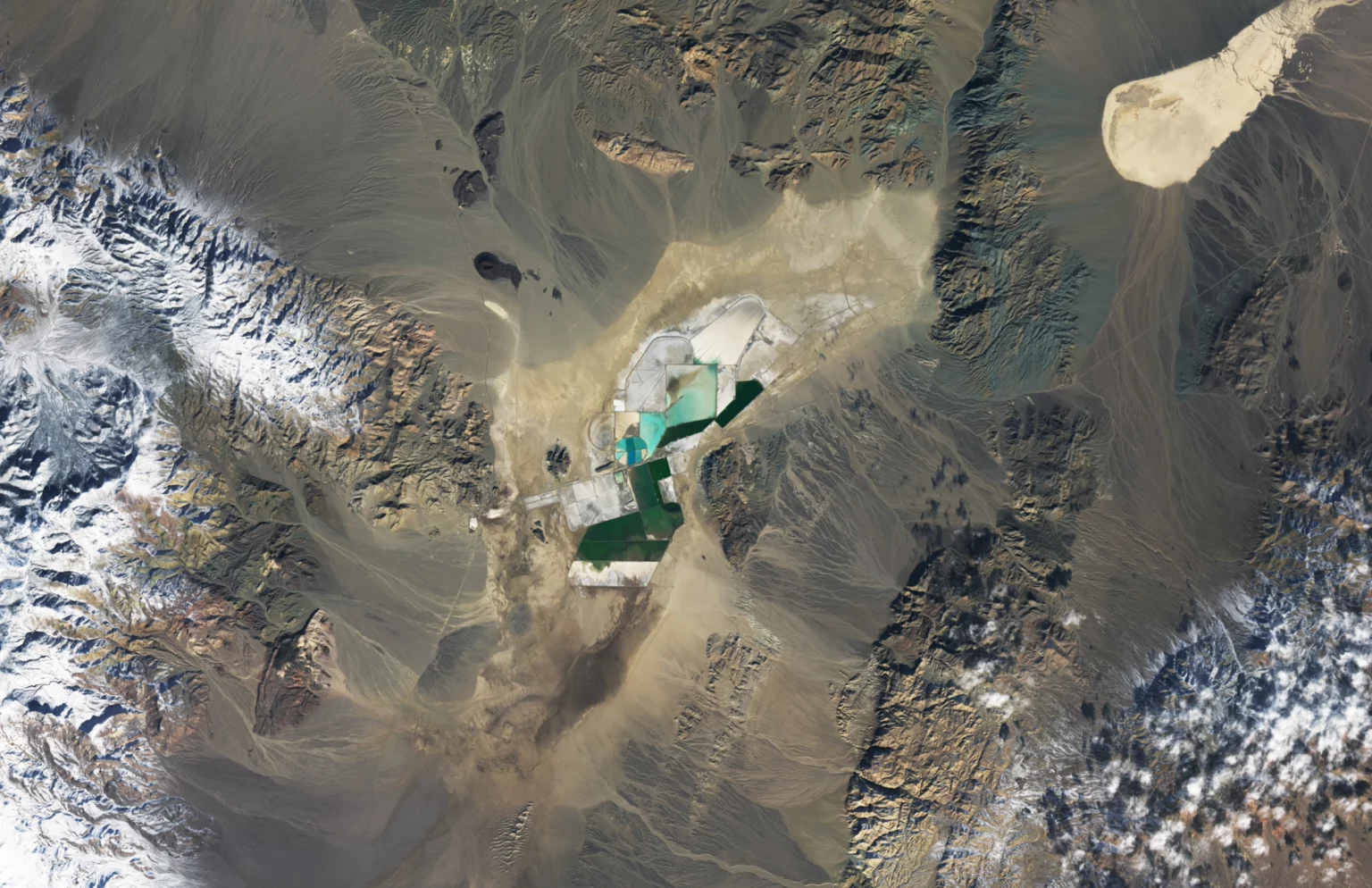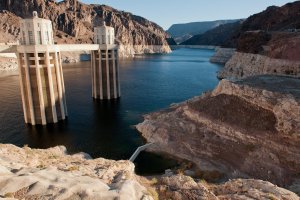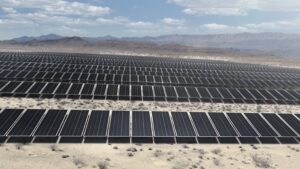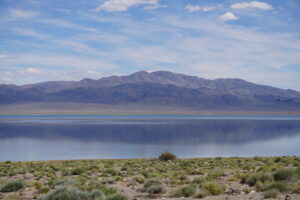There are more than 80 lithium projects proposed on Nevada’s public lands as the nation races to power the green energy transition. Now conservation groups are looking to state lawmakers to establish a rule-making process that would help reduce the establishment of mines in areas of greatest conflict.
Despite a growing interest in lithium mining, Nevada has not developed a state-level plan for where lithium production should – and should not – be permitted to avoid impacts on local communities and resources.
The United States produces less than 1% of global lithium production, all from a single facility, Albemarle Corp.’s Silver Peak mine in Esmeralda County, according to the United States Geological Survey. But that may soon change, making a statewide plan necessary, say conservation groups.
Mining on public lands requires federal approval. However, state approval is also required for various permits needed to advance mining operations. States — including Nevada — generally regulate waste management, groundwater use and impacts, reclamation, surface water use, and air quality operating permits.
Conservation groups argue that those permit requirements give Nevada an opportunity to help shape the future of lithium development in the state.
Earlier this month, the Center for Biological Diversity submitted a letter to the Joint Interim Standing Committee on Natural Resources, asking the committee to put forward a bill establishing a rule-making process that would help reduce the establishment of mines in areas of greatest conflict.
The letter also includes a request that the bill include funding for a study by the Desert Research Institute and state agencies to evaluate lithium resources in the state and determine which can be extracted with the least impact on communities and the environment.
Lack of data around natural resources isn’t just an issue in Nevada, but nationwide.
According to the Association of American State Geologists, the United States lacks an effective process for gathering, organizing, compiling, or publicly sharing geologic data that would help in the identification of valuable mineral deposits.
Data collection on natural resources — like the one suggested by the Center for Biological Diversity — could improve the identification and development of critical minerals, while also identifying and avoiding sensitive resources that may be adversely affected by exploration or mining, according to a recent report on how to improve mining on public lands by the Department of the Interior.
State Sen. Julie Pazina, the chairperson of the legislature’s Joint Interim Standing Committee on Natural Resources, said the committee has yet to make any determinations for what bill draft requests they’ll make for the next Legislative session in 2025.
“Over the next year, we will discuss and vet policy with the goal of protecting Nevada’s air, water and land for generations to come,” Pazina said.
In Nevada, the clean energy transition has been marred by conflict with numerous projects in high conflict areas attracting litigation and public outcry.
Earlier this year, federal land managers pulled their approval for a controversial lithium exploration project less than a mile from a treasured wetland habitat after getting hit with a lawsuit and fierce opposition.
Other mining projects in the state have faced backlash and delays, due to their proximity to cultural and ecologically sensitive areas. In one case, a small wildflower has been a source of conflict between conservationists and an Australian mining company, seeking to build an open-pit lithium mine on the plant’s only known habitat.
Last year, Washoe County commissioners withdrew a permit for a geothermal exploration project near Gerlach, after locals voiced fears the project could negatively impact the town’s water supply, the structural integrity of their homes, and nearby natural hot springs.
Permitting roadblocks, like the ones in Nevada, have been a major source of frustration for the Biden administration.
The potential for conflict in the state due to lithium mining is only growing. About half of the projects currently proposed in Nevada are in Esmeralda and Nye County, surrounding the town of Tonopah, a sizable population center.
“We support domestic lithium extraction as well, if it is done in the right places and with the right techniques. We oppose business-as-usual mining, dewatering of open pits, pit lakes, excessive water consumption, extinction of species or severe degradation of habitat, and regulatory shortcuts to permit bad mines faster,” wrote Patrick Donnelly, the Great Basin Director for the Center for Biological Diversity, in the letter.
Our stories may be republished online or in print under Creative Commons license CC BY-NC-ND 4.0. We ask that you edit only for style or to shorten, provide proper attribution and link to our website. AP and Getty images may not be republished. Please see our republishing guidelines for use of any other photos and graphics.




